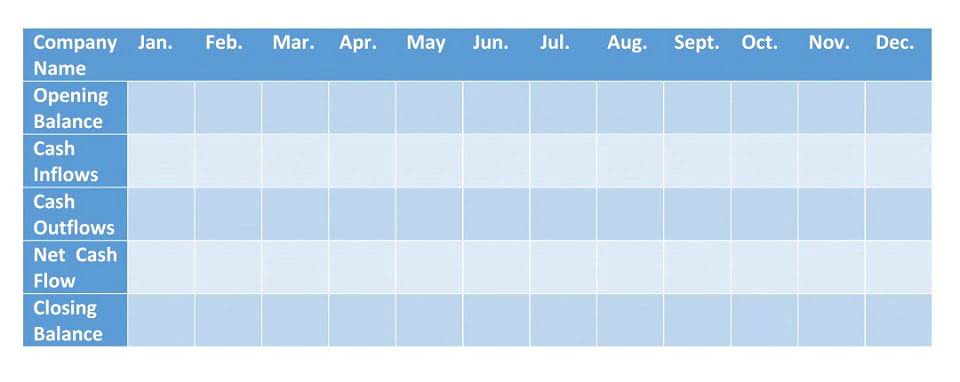
With the Avail Rental Property Accounting tool, rental property bookkeeping is automated. This information can then be exported into a spreadsheet to further customize or share with tax professionals. Real estate bookkeeping usually isn’t the first thing investors think of when investing in property, but it’s an important part of owning and managing rental property. With good bookkeeping, an investor can better identify opportunities to increase rental income, reduce expenses without affecting property value, and better track owner’s equity.
Best Accounting Software for Rental Property
It also lets you automate online rent collection, which is a huge time-saver. Having separate bank accounts keeps a landlord’s personal funds separate from business funds. This allows you to better track income and expenses and simplify accounting and bookkeeping. Moreover, by avoiding the commingling of funds, you can protect your assets and also make things easier for yourself at tax time. Landlord Studio is an easy to use property management and accounting software designed for landlords. Find and screen tenants, collect rent online, track income and expenses, run reports, and more – income statement all for free.
- STR income can come from multiple sources—Airbnb, Vrbo, direct bookings, you name it.
- 1% cash back is credited instantly following purchase with no maximum spend.
- However, it is important to understand processes and what you need to track and utilize available tools to create and follow a good accounting system.
- Bookkeeping is difficult, and landlords should not hesitate to hire external help to lighten their workload.
Download the essential monthly financial checklist
For one, you don’t want to commingle deposit money with other income, and also, many states actually mandate separate, dedicated accounts for deposits. With a few simple systems in place, you can be sure you are accounting for all your income and expenses and can be confident in your financial analysis. The same thing works for mortgage statements, invoices from contractors, and any other piece of paper related to your rental properties. Or if you get invoices or mortgage statements in landlord bookkeeping your email, either get them sent directly to your rental property email address, or forward them there.

The Benefits of Effective Bookkeeping For Landlords
- Becoming overwhelmed with financial management will not allow landlords to grow the business and concentrate on property supplier trends.
- There are certain laws and regulations that landlords must follow, so it’s important to be familiar with them.
- That’s why it’s a good idea to have a cash reserve that you can tap into when needed, kind of like an emergency fund for your real estate business.
- But even if you’re not an LLC, keeping your personal expenses and your business expenses together is not a great idea.
- Tracking revenue per unit helps you understand which properties are absolute stars and which might need extra attention (or a price adjustment).
- Cash Flow reports show the inflows and outflows of cash for a real estate investment over a specific period of time, such as a month or a year.
Never worry about late rent again with automatic rent payments made directly into your bank account. Real estate-specific software, like Stessa, is specifically designed to help both novice and sophisticated investors make informed decisions about their rental property. When you track everything Law Firm Accounts Receivable Management automatically, you have real-time data on where your money goes. Everything—income, expenses, and profit—flows through this account, so you don’t end up with a confusing mess at the end of the year. Once the date-entry has been completed and verified at least weekly, your monthly reconciliation should be an easy task.

Whatever the case, accounting for rental property becomes significantly easier with dedicated rental property accounting software for landlords. We encourage you to try some or all of the accounting tools recommended here. Avail has been one of our favorite property management software products, and now they have recently introduced new rental property accounting features. You can track your rental property income and expenses to streamline the accounting process. Additionally, rent payments and maintenance costs are automatically uploaded to your accounting dashboard to make it easier to see how much money is coming in and out. Keeping track of your rental property finances is a time-consuming task that often gets neglected by busy landlords.
Separate Your Business and Personal Accounts
You may opt to use QuickBooks for rental property accounting but might be intrigued by the additional features rental software offers beyond just accounting tools. You’ll find that property management software comes with a whole range of features that will make each task of your rental business easier. From online rent collection to vacancy advertising, it’s all included in your rental software. We have previously discussed using property management software to collect rent payments online. For the novice investor, rental property accounting might seem as simple as tracking rent payments (income) and property maintenance and taxes (expenses).
- Good record keeping can also help you keep tabs on your rental property’s performance over time, which can be helpful in making future decisions about improvements or repairs.
- For instance, landlords who require an integrated banking option can consider Baselane or Azibo, while Avail is an excellent choice for an all-around full-featured software product.
- As a landlord, you need to know how much rent is due and when it is due.
- Azibo makes reconciliations easy by automatically importing your transactions, saving you time and eliminating human errors.
- Rather than scrambling at the last minute, stay on top of your tax prep by categorizing your transactions at least once per month.
All-in-one rental finances
It’s important to maintain good records in order to track the financial performance of your rental investment. With accurate financial statements, you’ll always be prepared in case of an audit. Along with income, landlords should track expenses related to buying, operating, and maintaining the property. For example, you can deduct mortgage interest, repairs and improvements, property taxes, business-related travel expenses, and other operating costs as business expenses. This record keeping also helps when you want to calculate performance metrics for your property.

This guide will walk you through the basics of keeping your books in order. We’ll cover everything from tracking your expenses and income to filing taxes on your rental property. Just take the time to understand your accounting processes, create a consistent accounting system, and use industry tools, and resources to help you stay organized. If you are a property manager, it is vital that you have a separate bank account for your business and are familiar with how to handle trust accounts. Commingling funds is illegal and you must keep your owners’ assets separate from your own.
